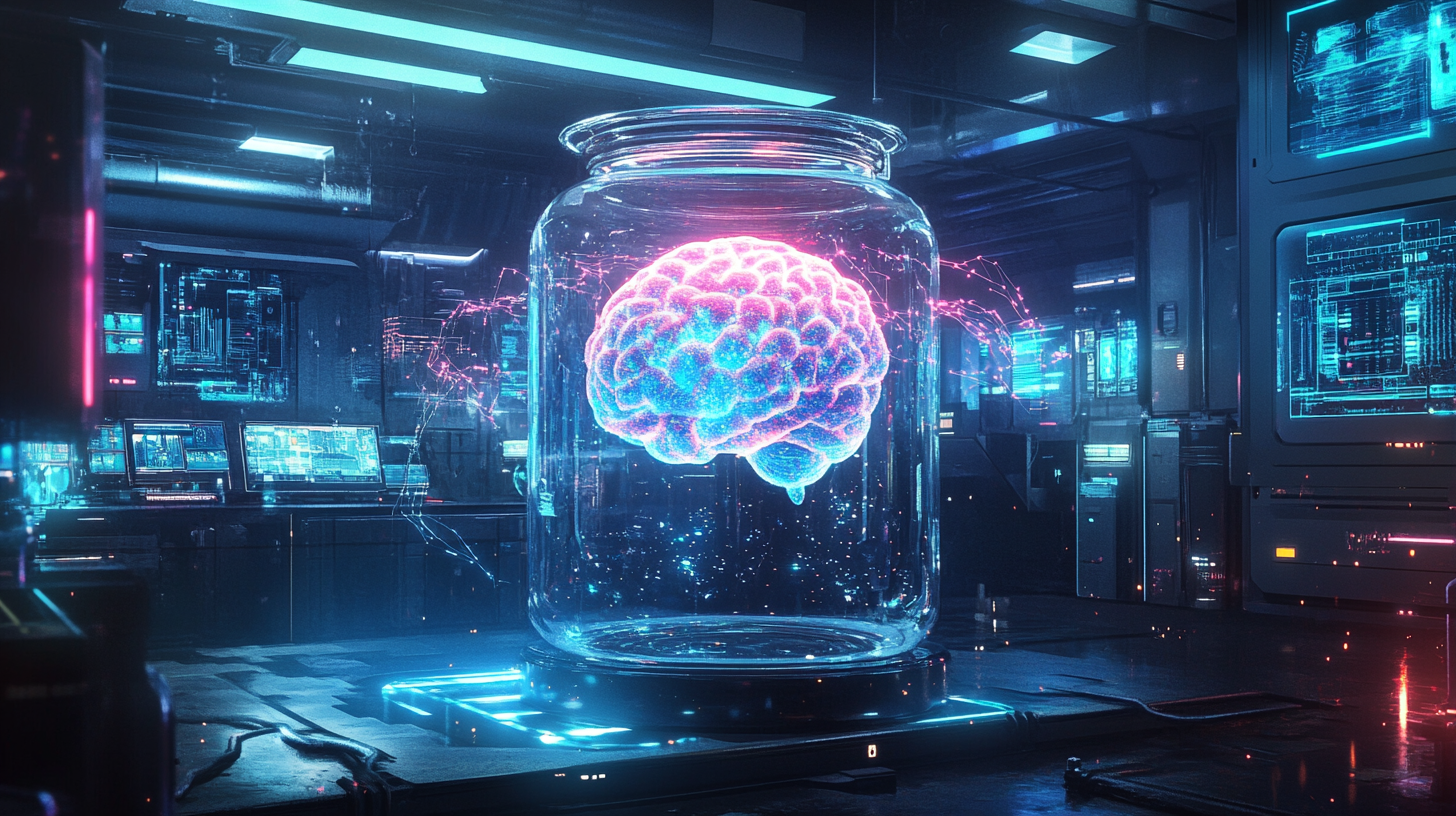The Genius-in-a-Jar Delusion: Why AI Is About to Dropkick Your Industry

Let’s face it, humanity loves to overhype things. Fidget spinners, avocado toast, NFTs-and now AI. Everyone’s running around screaming about how generative AI is the second coming of Skynet, but guess what? Most of these so-called “intelligent systems” have the mental range of a bored goldfish waiting for someone to throw them a prompt. Impressive? Sure. Revolutionary? Not yet. Let’s explore why your job is still (temporarily) safe-and why that’s about to change.
The "Genius in a Jar" Problem
Picture this: you’ve got a supercomputer that can recite Shakespeare in binary while solving world hunger. Cool, right? Except, it’s sitting there like a fancy paperweight until someone asks it to do something. This is where we’re stuck right now: raw intelligence without agency. These AI models are genius kids trapped in jars, waiting for a human to unscrew the lid. Fun at parties, useless in the wild.
Real agency-the kind where AI knows what it should be doing-isn’t just about cranking up the processing power. It’s about teaching machines to make decisions without constant human hand-holding. That’s where it gets spicy. How do you get a system to figure out not just how to think but what to think about in the first place? Spoiler: it’s way harder than just slapping a decision tree on ChatGPT and calling it a day.
Enter the Ethics Circus
So, how do you teach a machine to make decisions? Easy! Just dive headfirst into thousands of years of human philosophy and come out with a decision framework that works for something that’s not human. Utilitarianism? Too simplistic. Deontology? Too rigid. Teleology? Too much Latin. The answer? All of the above. Because building an AI agent is like writing the ultimate “choose your own adventure” book, except every choice has moral, ethical, and logistical consequences.
Oh, and before the agent can even think about making decisions, it has to figure out what it is. What are its constraints? Its capabilities? Its context? (Shoutout to the three C’s!) Only then can it stop being a genius-in-a-jar and start being, well, useful.
The "Jarvis Isn’t Real" Revelation
Now, let’s talk about the broader context. You can’t just plop your AI agent into the world and expect it to thrive. It needs to know its environment, its tools, its goals-and keep track of all that without having a meltdown. It’s like trying to build Jarvis from scratch, only to realize that even Turing threw his hands up at this part of the equation.
Here’s where large language models (LLMs) like ChatGPT and its cousins come in. They’re great at solving isolated problems, but coordinating all those solutions into a coherent strategy? That’s still the holy grail. Researchers are chasing agency, and no, it’s not just about the code. It’s about giving the AI a metaphorical body-something that lets it act in the world, not just react to it.
The "Brain in a Jar" Epiphany
Imagine your brain floating in a jar, no eyes, no ears, no hands. You’re smart as hell, but guess what? You’re also useless. That’s today’s AI in a nutshell. Its sensory input is data streams, its “hands” are API calls, and its understanding of the world? Let’s just say it’s not ready for the meatspace.
But here’s the kicker: researchers have made significant progress in cracking this problem. Years of research into cognitive architectures and agent frameworks weren’t just academic exercises-they were laying the groundwork for something exponentially bigger than anything seen before. The real breakthrough? Once a working agent system exists, it can be replicated at scale. Billions of copies, all ready to reshape the world. It’s not just about replacing mid-level engineers-it’s about a tsunami of artificial executive function poised to sweep through every industry, workflow, and digital interaction.
2025: The Dominoes Start Falling
Meta’s already hinting at replacing mid-level engineers with AI by 2025. Sound far-fetched? It’s not. The dominoes are already falling. The systems are here, and they’re scaling faster than most people realize. Whether it’s designing new workflows, managing entire industries, or just automating the crap out of your daily tasks, AI is coming for the boring, repetitive stuff first. And trust me, it won’t stop there.
The question isn’t whether AI will disrupt your world-it’s when. So buckle up. The genius is about to break out of the jar, and it’s bringing a revolution with it.
Inspired by insights shared by David Shapiro on X (formerly Twitter).